MCQ ON KREBS CYCLE class 12 for NEET | KREBS CYCLE class 11 | MCQ KREBS CYCLE with Answer | Check the below NCERT MCQ question for class 12 Biology based on the with Answers.
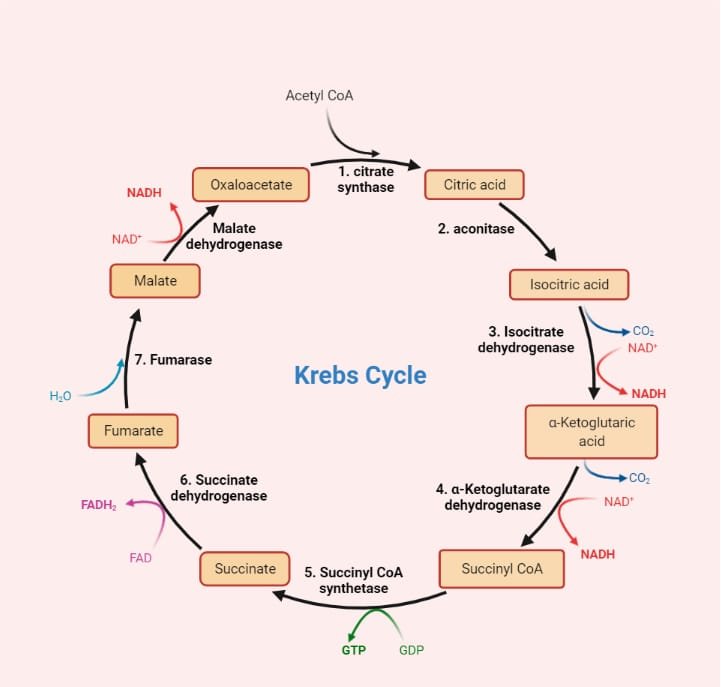
MCQ ON KREBS CYCLE class 12 for NEET
MCQ on KREBS CYCLE class 12 Biology with answers were prepared based on the latest pattern.We have provided class 12 Biology MCQs question with Answers to help students understand the concept very well.
MCQ ON KREBS CYCLE is useful for NEET / CSIR / UGC / CBSE / ICSE / AIIMS / EXAM / AFMC EXAM / STATE LEVEL MEDICAL EXAM 2022-23 , 2023-24
INTRODUCTION:-
Glycolysis is
also known as EMP PATHWAY , Embeden Meyehof pathway or Embden Meyehof Parnas pathway .It occurs in cytoplasm or cytosol.It has two phase: energy spending preparatory cum cleavage phase and energy conserving pay off phase.
Glycolysis begins with energy spending
phase.
(I) phosphorylation of glucose
(ii) formation of fructose 6 phosphate .
(iii) second phosphorylation
(iv) lysis
(v) Isomerisation of DiHAP.
(vi) dehydrogenation
(Vii) Substrate level ATP synthesis
(viii) Isomerisation
(ix) dehydration
(x) pyruvate and ATP synthesise.
Krebs cycle operates in the matrix of mitochondria or power house of the cell.Pyruvic acid enters mitochondria.
It is decarboxylated oxidatively outside the Krebs cycle to produce acetyl CoA, NADH and CO2 with the help of enzyme complex pyruvate dehydrogenase .It is called gateway step or link reaction.
Acetyl Co enzyme is a common intermediate of carbohydrates and fat metabolism.It is substrate entrant of Krebs cycle.
MCQ ON KREBS CYCLE/TCA/CITRIC ACID CYCLE class 12 for NEET
1. The inner membrane of mitochondria is permeable to
(a) Glucose
(b) fructose
(c) sucrose
(d) ATP
Ans (d) ATP
2. Conversion of pyruvic acid into ethyl alcohol is facilitated by enzyme.
(a) decarboxylase and dehydrogenase
(b) carboxylase
(c) phosphatase
(d) dehydrogenase
Ans. (a) decarboxylase and dehydrogenase
3. Which molecule links glycolysis with fermentation as well as TCA cycle.
(a) ethanol
(b) acetaldehyde
(c) PEP
(d) pynionic acid
Ans. (d) pynionic acid
4. Turns of Krebs cycle required for complete oxidation of one molecule of glucose
(a) 2
(b) 3
(c) 6
(d) 4
Ans.(a) 2
5. Decarboxylation occurs during
(a) glycolysis
(b) ETS
(c) Krebs cycle
(d) All the above
Ans.(c) Krebs cycle
6.Oxalosuccinic acid , a transparent intermediary compound of Krebs cycle is
(a) 4- Carbon compound
(b) 5-carbon compound
(c) 6- carbon compound
(d) 3-carbon compound
Ans.(c) 6 – carbon compound
7. The common respiratory substrate is
(a) fructose
(b) Glucose
(c) sucrose
(d) lactose
Ans.(b) Glucose
8. How many ATPs are formed per glucose molecules in Krebs cycle?
(a) 2
(b) 24
(c) 6
(d) 28
Ans.(b) 24
9. RQ of sprouting potato is
(a) 1
(b) <1
(c) >1
(d) zero
Ans. (a) 1
10.Before combining with OAA , pyruvic acid is changed into
(a) succinic acid
(b) malic acid
(c) acetyl co A
(d) citric acid
Ans. (c) acetyl co A
11. Pasteur effect can be studied in case of
(a) nostoc
(b) penicillium
(c) pinnularia
(d) sachharomyces
Ans.(d) sachharomyces
12. For their functioning , cytochromes possess
(a) Mg
(b) Fe
(c) Mn
(d) Na
Ans . (b) Fe
13.Number of carbon atoms available in acetyl Co A is
(a) 6
(b) 4
(c) 2
(d) 1
Ans.(c) 2
14. Krebs cycle forms an important product
(a) Acetyl CoA
(b) ADP
(c) ATP
(d) water
Ans. (c) ATP
15. Which is amphibolic
(a) glycolysis
(b) Krebs cycle
(c) ETC
(d) Glucose synthetase
Ans.(b) Krebs cycle
ALSO READ:-
● YOU CAN WATCH BIOLOGY SIR Youtube channel
16.Krebs cycle is also called
(a) Citric acid cycle
(b) Tricarboxylic acid cycle
(c) both a and b
(d) inner membrane
Ans.(c) both a and b

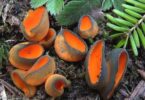
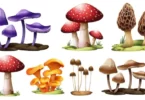
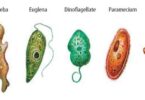
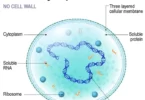
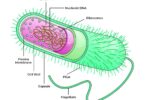
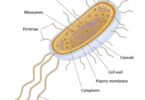
Leave a Comment